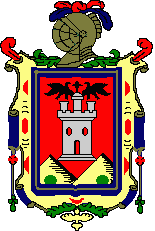Emergency phones - Quito accomodation
August 10th, 1809
Already in December, 1808, Count Ruiz de Castilla, President of the Audiencia of Quito, was informed of the existence of a conspiracy which hoped to liberate the Audiencia from Spanish rule. The conspirators struck in August, 1809. On the evening of August 9th, they met in the house of Manuela Cañizares, next to the cathedral, and after declaring themselves to form a properly constituted assembly, proceeded to organize a government known as the Sovereign Junta. The troops quartered in the city, not without reason, declared their support for the movement. The President of the Audiencia was informed that his period of office was over, as that of all the men that he had appointed. On August 16th, in open council, the inhabitants of Quito ratified what the conspirators had done, amid cheers and celebrations. The August declaration, which has gained for Quito the title "Light of America", was not a casual, purely emotional affair: it had a long history behind it, the teachings of Espejo, the ideas of men such as Juan de Dios Morales, passionate democrat, brought up on the ideas of Rousseau and the Encyclopaedists. And therefore, although attempts were made to belittle both the intentions and the results of the declaration, they were both of radical importance. As early as December ll th, 1811 the First Congress of Free Peoples of the Presidency of Quito declared absolute sovereignty, and promulgated a constitution on February 15th. Quito raised an army of three thousand men to defend the government, but these troops, inexperienced and poorly equipped, were defeated in the north and forced to surrender.
Count Ruiz de Castilla, back in power, promised to preserve the Junta, and not to take reprisals. But when the Royal Battalion came up to Quito from Lima - five hundred thugs under the command of Arredondo - as well as troops from Guayaquil and Cuenca, he dissolved the Junta and imprisoned the leaders of the uprising, to the number of sixty. Charges were brought against them, and forty-six of them faced leath penalty. They were to be tried by the Viceroy of Santa Fe. Ominous rumurs began to spread,and Quito feared for the lives of the prisoners. A brave group, made up mostly of young men, decided to attack the quarters of the Lima Royal Battalion and set the prisoners free.
On August 2nd, 1810, to the sound of the bells of the cathedral that suddenly began to chime, they attacked. But as they were striking off the chains of the prisonners, soldiers from Popayan. burst in through a hole in the wall and a bloody massacre took place Juan de Dios Morales, Juan Salinas, Javier Ascazubi, the presbyter Riofrio, Nicolas Aguilera, Antonio Peña, José Vinueza, Juan Larrea, Manuel Cajias, Mariano Villalobos, Anastasio Oiea, Vicente Melo, Manuel Quiroga and others were murdered in the most cowardly fashion, Quiroga being slain in the arms of his daughters who were visiting him at that moment. Then the soldiers rushed out into the streets and fell upon the people that they found there.
THE BATTLE FOR LIBERTY
There follows a long history of attempts at gaining independence, of struggles and heroic resistance on the part of the city that never accepted defeat. In the middle of the wars of independence, the story comes to an end on the slopes of Mount Pichincha.
General Antonio José de Sucre, while trying to join forces with Bolívar in Pasto, to the north of Quito, was seen by the Spaniards as he led his troops over the slopes of the mountain. They attacked him, and he offered battle. On the steep slopes the patriotic forces repelled the attacks of the royalists time and again, until finally, after three hours of bloody and uncertain combat, the royalists abandoned the battlefield. The inhabitants of the heroic city were watching the development of the battle, and celebrated the victory that set the seal on so long a history of rebellion and martyrdom.

